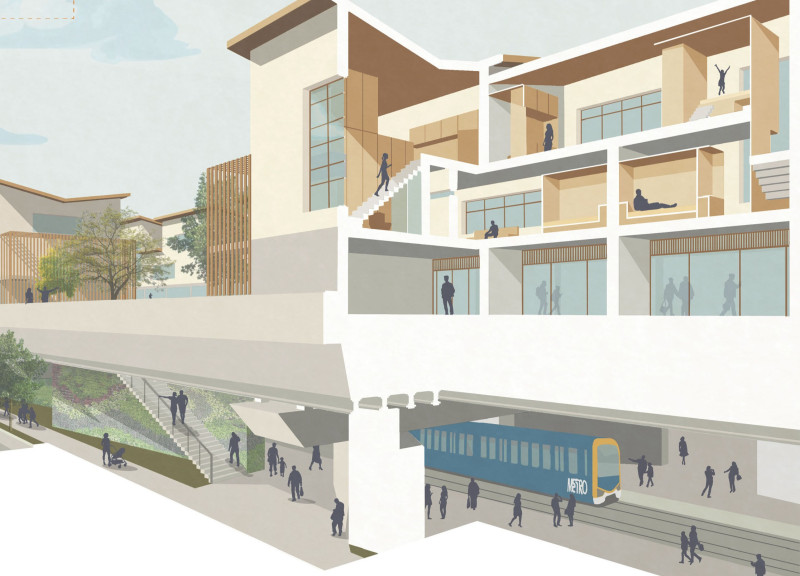5 key facts about this project
The Elevated Village in Melbourne addresses the city's growing need for affordable housing. Positioned above train lines, the project seeks to use overlooked air space to create a new community environment. It combines residential units with small commercial spaces to improve access to transport and reduce urban sprawl while catering to various local needs.
Residential Units
The design features twelve residential units in each housing block, organized to maximize light and space. The arrangement places private and utility areas on the ends, creating open central living spaces that feel airy and inviting. For those living in two-story units, the living areas are on the upper floor, allowing for better views and more natural light. This thoughtful layout enhances daily living while making the most of smaller areas.
Commercial Micro-Shops
Alongside the housing units, each block includes eight micro-shops designed for different businesses, such as coffee shops and art galleries. These commercial spaces encourage local entrepreneurship and create job opportunities within the community. Their close proximity to homes means that residents can easily access goods and services without traveling far, which adds to the convenience of living in the Elevated Village.
Materials and Structural Considerations
The project uses materials that emphasize both practicality and sustainability. Straw Bale Structural Insulated Panels (S.I.P.) provide insulation and improve energy efficiency within the homes. Exterior walls feature lime plaster render for durability and an appealing look. Awning windows enhance ventilation throughout the units, and a rocking footing system with lead rubber bearings helps control vibrations, ensuring the structure remains stable and secure.
Shared communal areas play a significant role in promoting social interaction among residents. A lounge and kitchen create spaces for gatherings, helping to foster a sense of community. These design elements support connections between neighbors, making the Elevated Village not just a place to live, but a vibrant environment where residents can build relationships and share experiences.




















































